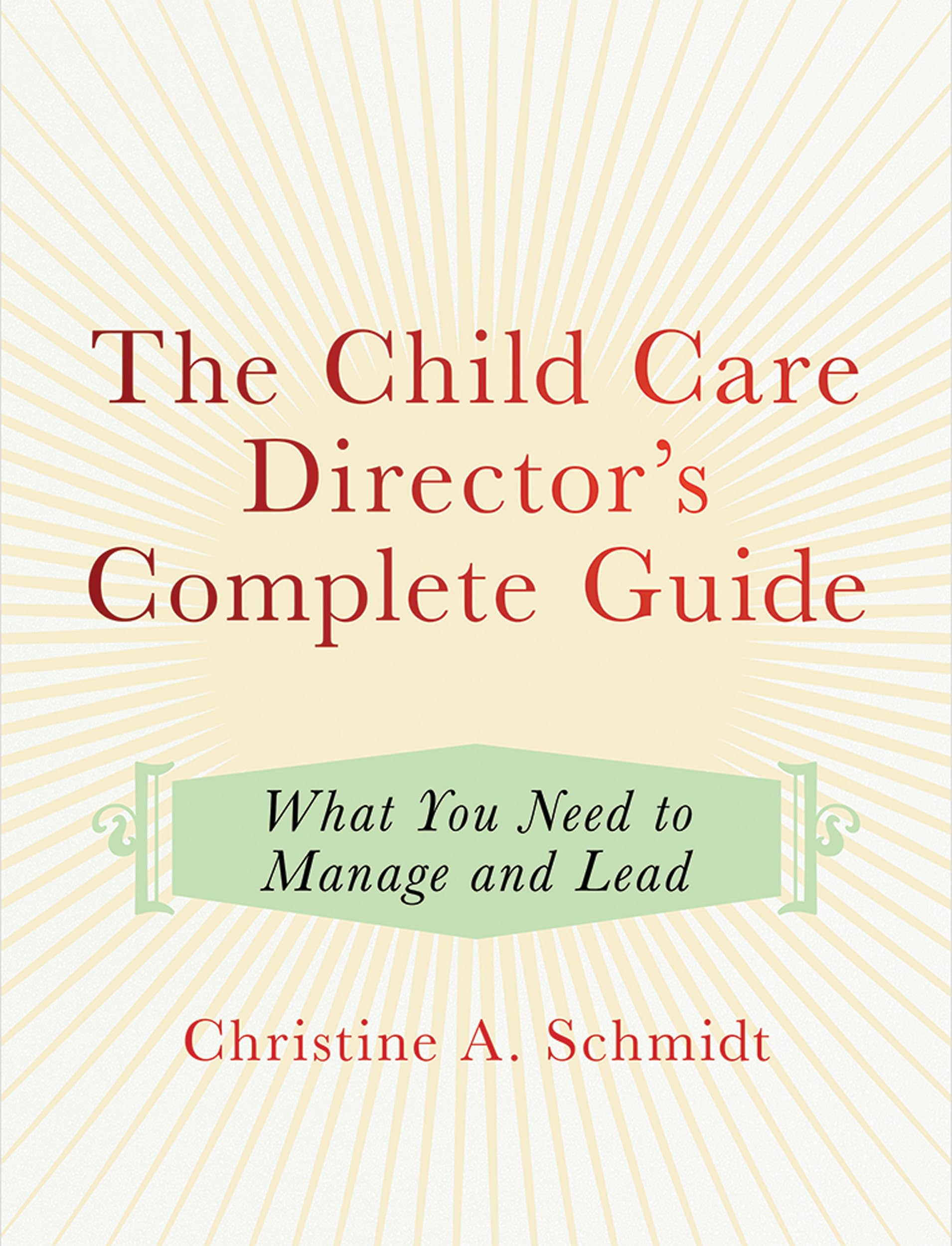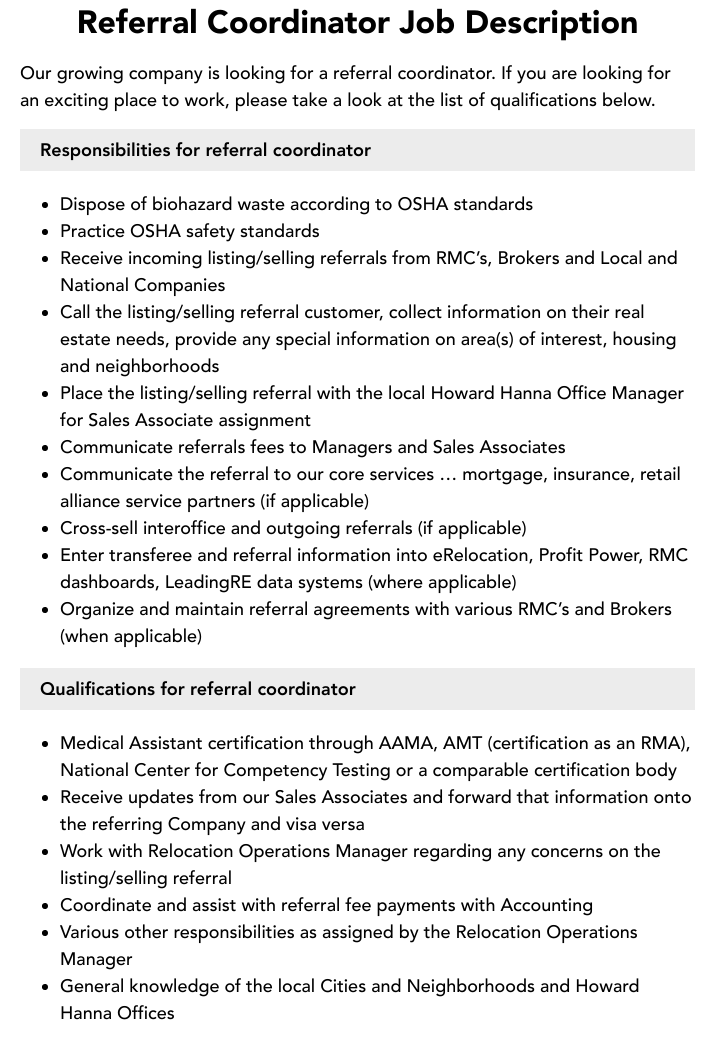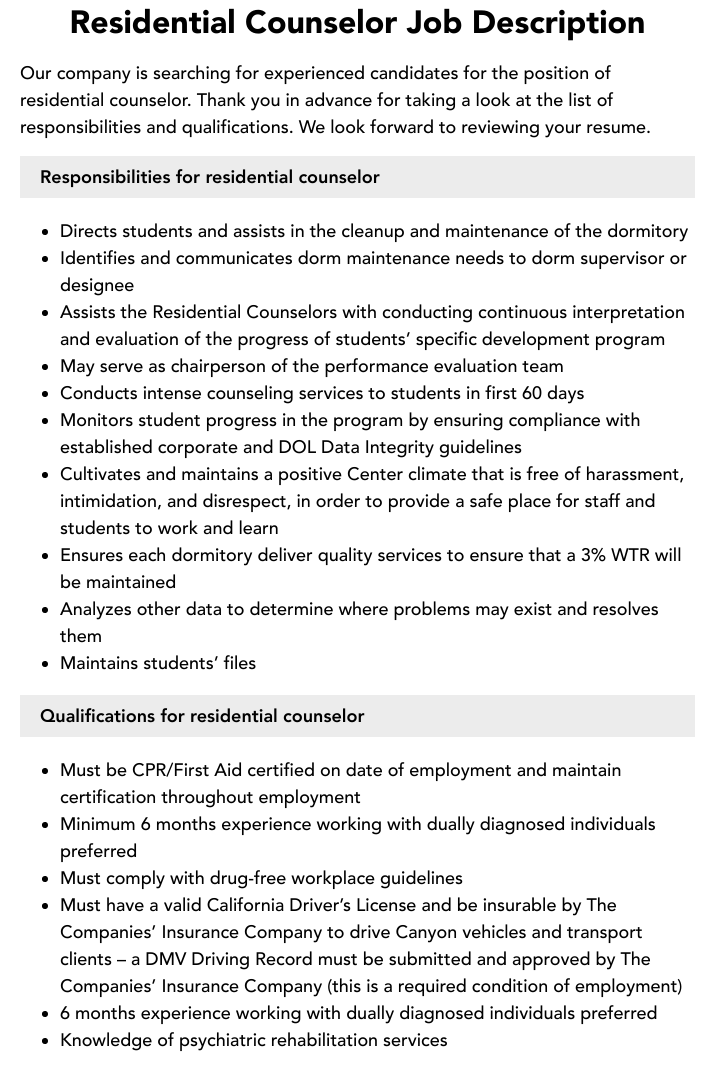
A daycare director job description outlines the duties, responsibilities, and qualifications required for an individual to effectively manage a daycare facility. This document serves as a roadmap for the role and ensures that the director possesses the necessary skills and experience to provide a safe, nurturing, and educational environment for children.
The importance of a well-defined daycare director job description cannot be overstated. It:
- Attracts qualified candidates: A clear job description helps potential candidates understand the expectations and requirements of the role, attracting those with the right qualifications and experience.
- Sets performance standards: The job description establishes the performance standards that the director is expected to meet, providing a benchmark against which their work can be evaluated.
- Facilitates training and development: By identifying the skills and knowledge required for the role, the job description helps in designing training and development programs to enhance the director’s capabilities.
The historical context of daycare director job descriptions is rooted in the growing recognition of the importance of early childhood education and care. As more parents entered the workforce, the demand for high-quality daycare facilities increased, leading to the need for qualified directors to oversee their operations.
The main article topics that delve deeper into daycare director job descriptions include:
- Duties and Responsibilities
- Qualifications and Experience
- Compensation and Benefits
- Career Advancement Opportunities
1. Leadership
Leadership is a cornerstone of the daycare director job description. Effective directors possess a unique blend of interpersonal, organizational, and visionary qualities that enable them to create and maintain a thriving daycare environment.
Daycare directors are responsible for providing guidance and direction to their staff, setting clear goals, and fostering a positive and supportive work culture. They must be able to motivate and inspire their team to provide high-quality care and education to the children in their charge.
Furthermore, daycare directors play a crucial role in shaping the overall vision and mission of the daycare. They work closely with parents and the community to ensure that the daycare is meeting the needs of the children and families it serves.
In practice, leadership skills are essential for daycare directors to:
- Create a positive and nurturing environment for children
- Motivate and support staff to provide high-quality care and education
- Collaborate with parents and the community to build strong partnerships
- Manage the day-to-day operations of the daycare efficiently and effectively
- Stay abreast of best practices in early childhood education and care
In conclusion, leadership is an indispensable aspect of the daycare director job description. Directors who possess strong leadership skills are better equipped to create and maintain a high-quality daycare environment that supports the healthy development and well-being of young children.
2. Management
Management is a critical component of the daycare director job description. Daycare directors are responsible for the overall operation of the daycare, including budgeting, staffing, and program development. They must be able to plan, organize, and implement policies and procedures that ensure the smooth and efficient operation of the daycare.
One of the most important aspects of management for daycare directors is budgeting. Daycare directors must be able to develop and manage a budget that meets the needs of the daycare while ensuring that the daycare remains financially viable. This includes forecasting revenue and expenses, allocating resources, and monitoring spending.
Daycare directors are also responsible for staffing the daycare. This includes recruiting, hiring, training, and evaluating staff. Daycare directors must ensure that the daycare has a sufficient number of qualified staff to meet the needs of the children in their care.
In addition to budgeting and staffing, daycare directors are also responsible for program development. This includes developing and implementing age-appropriate curricula and activities that promote the children’s physical, cognitive, and social development. Daycare directors must also ensure that the daycare’s programs are in compliance with all applicable regulations.
Management is essential for the success of any daycare. Daycare directors who are able to effectively manage their daycare will be able to provide a safe, nurturing, and educational environment for the children in their care.
3. Education
Education is a crucial component of the daycare director job description. Daycare directors are responsible for overseeing the educational development of the children in their care. This includes developing and implementing age-appropriate curricula, providing professional development opportunities for staff, and assessing children’s progress.Daycare directors must have a strong understanding of early childhood education best practices. They must be able to create and implement developmentally appropriate activities that promote children’s physical, cognitive, and social-emotional growth. Daycare directors must also be able to assess children’s progress and identify any areas where they may need additional support.In addition to their knowledge of early childhood education, daycare directors must also be able to effectively communicate with parents and staff. They must be able to explain the daycare’s educational philosophy and curriculum to parents and keep them informed of their child’s progress. Daycare directors must also be able to work with staff to provide a consistent and supportive learning environment for children.The educational component of the daycare director job description is essential for ensuring that children receive a high-quality education. Daycare directors who are knowledgeable about early childhood education and who are committed to providing a supportive learning environment can make a significant impact on the lives of the children in their care.
Here are some real-life examples of how education is connected to the daycare director job description:
- Daycare directors develop and implement age-appropriate curricula that promote children’s learning and development.
- Daycare directors provide professional development opportunities for staff to help them stay up-to-date on best practices in early childhood education.
- Daycare directors assess children’s progress and identify any areas where they may need additional support.
- Daycare directors communicate with parents about their child’s progress and the daycare’s educational philosophy.
- Daycare directors work with staff to create a consistent and supportive learning environment for children.
Understanding the connection between education and the daycare director job description is essential for ensuring that children receive a high-quality education. Daycare directors who are knowledgeable about early childhood education and who are committed to providing a supportive learning environment can make a significant impact on the lives of the children in their care.
4. Compliance
Compliance is an essential component of the daycare director job description. Daycare directors are responsible for ensuring that their daycare meets all applicable laws and regulations. This includes federal, state, and local regulations.
There are many reasons why compliance is important for daycare directors. First, compliance helps to ensure the safety and well-being of the children in the daycare. By following all applicable regulations, daycare directors can help to prevent accidents, injuries, and illnesses.
Second, compliance helps to protect the daycare from liability. If a daycare is found to be in violation of any applicable laws or regulations, it could be held liable for any damages that result. This could include financial damages, as well as damage to the daycare’s reputation.
Third, compliance helps to maintain the daycare’s good standing with the community. Daycare directors who are known for their compliance with all applicable laws and regulations are more likely to be trusted by parents and the community. This can lead to increased enrollment and a better reputation for the daycare.
Here are some real-life examples of how compliance is connected to the daycare director job description:
- Daycare directors must ensure that their daycare meets all applicable health and safety regulations. This includes having a clean and safe facility, providing healthy food, and having adequate staff to care for the children.
- Daycare directors must ensure that their daycare meets all applicable staffing regulations. This includes having a sufficient number of qualified staff to care for the children, and providing staff with adequate training.
- Daycare directors must ensure that their daycare meets all applicable curriculum regulations. This includes providing a developmentally appropriate curriculum that meets the needs of the children.
Understanding the connection between compliance and the daycare director job description is essential for ensuring that daycare directors are able to provide a safe, healthy, and nurturing environment for the children in their care.
FAQs on Daycare Director Job Description
This section addresses frequently asked questions about the daycare director job description, providing concise and informative answers to clarify common concerns or misconceptions.
Question 1: What are the primary responsibilities of a daycare director?
Daycare directors oversee the overall operation of the daycare, including managing staff, developing and implementing programs, ensuring compliance with regulations, and maintaining a safe and nurturing environment for children.
Question 2: What qualifications are typically required for a daycare director position?
Daycare directors typically need a bachelor’s degree in early childhood education or a related field, along with experience working with children and managing staff. Additional certifications or licenses may be required depending on the specific daycare and state regulations.
Question 3: What are the key qualities and skills that make a successful daycare director?
Successful daycare directors possess strong leadership, communication, and organizational skills. They are passionate about early childhood education, have a deep understanding of child development, and are committed to providing a high-quality learning environment for children.
Question 4: What is the importance of compliance in the daycare director role?
Compliance is crucial for daycare directors to ensure the safety, well-being, and legal operation of the daycare. It involves adhering to all applicable laws, regulations, and standards related to health, safety, staffing, curriculum, and other aspects of daycare operations.
Question 5: How can daycare directors stay up-to-date with best practices and industry trends?
Daycare directors can stay informed by attending conferences, workshops, and training programs. They can also read industry publications, consult with experts, and network with other daycare professionals to gain insights into best practices and emerging trends in early childhood education.
Question 6: What are the career advancement opportunities for daycare directors?
Daycare directors with experience and strong leadership skills may advance to roles such as regional director, early childhood education consultant, or executive director of a larger daycare organization. They may also pursue higher education to qualify for administrative or leadership positions in the field of early childhood education.
Summary:
The daycare director job description encompasses a wide range of responsibilities, qualifications, and skills. Compliance, leadership, and a commitment to providing a high-quality learning environment for children are essential elements of this role. Daycare directors play a vital role in ensuring the well-being and development of young children in their care.
Transition to Next Section:
For further insights into the daycare director profession, explore our article on the importance of leadership in daycare management.
Tips for Daycare Directors
Daycare directors play a pivotal role in ensuring the well-being, safety, and development of young children in their care. To excel in this role, it is essential to adopt effective strategies and practices. Here are some valuable tips to enhance your performance as a daycare director:
Tip 1: Prioritize Safety and Compliance
Maintaining a safe and compliant environment is paramount. Regularly review and adhere to all applicable regulations, health codes, and safety protocols. Conduct safety drills, ensure proper staff training, and maintain a clean and hazard-free facility.
Tip 2: Build a Strong Team
Hire and retain a dedicated and qualified staff who share your passion for early childhood education. Provide ongoing training and professional development opportunities to enhance their skills and knowledge.
Tip 3: Create a Nurturing Learning Environment
Develop age-appropriate and engaging curriculum that fosters children’s physical, cognitive, and social-emotional growth. Provide ample opportunities for play, exploration, and hands-on activities.
Tip 4: Communicate Effectively
Maintain open and regular communication with parents, staff, and other stakeholders. Share children’s progress, address concerns promptly, and provide clear updates on daycare policies and events.
Tip 5: Stay Informed and Adapt
Keep abreast of best practices, research, and industry trends in early childhood education. Attend workshops, read professional journals, and seek opportunities to collaborate with other daycare professionals.
Tip 6: Seek Feedback and Continuous Improvement
Regularly gather feedback from parents, staff, and children to identify areas for improvement. Use this feedback to enhance your programs and services, and foster a culture of continuous improvement.
Tip 7: Embrace Leadership and Vision
Provide visionary leadership by setting clear goals, motivating your team, and creating a positive and supportive work environment. Inspire your staff to go above and beyond in providing exceptional care and education to the children.
Summary:
By implementing these tips, daycare directors can effectively manage their facilities, ensure the well-being of children, and foster a thriving learning environment. These strategies will contribute to the success and reputation of the daycare and enhance the overall experience for children, families, and staff.
Transition to Conclusion:
To further explore the multifaceted role of a daycare director, continue reading our comprehensive article on the essential qualities and responsibilities of this critical position.



